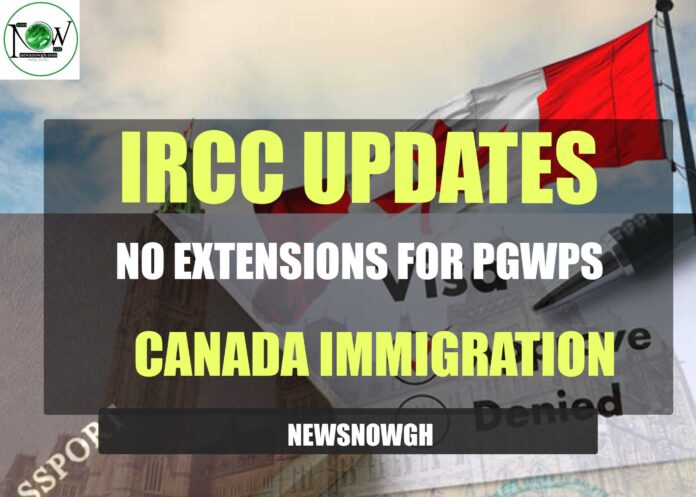Canada Immigration: No Extensions for PGWPs | IRCC Updates
Recent changes in Canada’s immigration policy confirm that Post-Graduation Work Permits (PGWPs) will no longer be extended. This policy shift carries significant consequences for international graduates. The PGWP has been a vital pathway for gaining Canadian work experience and transitioning to permanent residency.
In this write-up, we will examine the implications of this decision and explore alternative options for those affected.
Understanding the PGWP Program
The Post-Graduation Work Permit allows international students who graduate from designated Canadian institutions to work in Canada for up to three years. The duration depends on the length of the study program completed. This open work permit is not tied to a specific employer, providing graduates with the flexibility to seek employment in their field.
Historically, the PGWP has been a crucial tool for international graduates to gain valuable work experience. This experience often enhances their eligibility for permanent residency through pathways such as Express Entry.
The Policy Shift: End of Extensions
Canada’s Immigration, Refugees, and Citizenship Canada (IRCC) recently announced that PGWPs will no longer be extendable beyond their original expiration date. This marks a significant change from previous policies. In 2023, for example, the IRCC allowed the renewal of expired PGWPs under certain conditions. The new decision aims to streamline immigration pathways, but it has left many individuals feeling uncertain about their futures in Canada.
Why This Policy Matters
The inability to extend PGWPs creates several challenges for international graduates:
Limited Time for Permanent Residency Applications
With PGWPs no longer extendable, graduates face a limited timeframe. They need to secure work experience and apply for permanent residency within this window. Those who cannot meet the eligibility criteria risk losing their work status in Canada.
Increased Competition in Express Entry
Recent Express Entry draws have shown rising Comprehensive Ranking System (CRS) score requirements. This trend makes it more challenging for candidates to obtain an Invitation to Apply (ITA) for permanent residency. In October and November 2024, the draws paused briefly, adding pressure for PGWP holders in the Express Entry pool.
Challenges for International Graduates
The end of PGWP extensions places additional burdens on international graduates:
- Work Permit Expiry: Graduates face the risk of having to leave Canada if they do not secure alternative permits or residency options. This uncertainty can be stressful and disruptive.
- Limited Career Opportunities: Without the ability to extend their PGWPs, graduates may have a diminished timeframe to establish their careers in Canada. This limitation can hinder their professional growth and development.
- Increased Stress and Uncertainty: The new policy adds stress for those navigating Canada’s immigration system. Ongoing changes to eligibility criteria for work permits and Express Entry amplify this uncertainty.
Alternative Options for Affected Graduates
Despite the challenges posed by the end of PGWP extensions, several alternative pathways are available:
Apply for a Different Work Permit
Graduates can explore employer-specific work permits, which require a Labour Market Impact Assessment (LMIA). However, this option depends on an employer’s willingness to sponsor the graduate. Additionally, spousal open work permits are available to spouses of international students or foreign workers. Recent rule changes have restricted eligibility based on the principal applicant’s qualifications, making this option less accessible.
Visitor Record
If securing a new work permit proves difficult, individuals may apply for a visitor record. This allows them to remain in Canada legally but does not permit them to work. It serves as a temporary solution to avoid leaving the country.
Bridging Open Work Permit (BOWP)
Candidates who have submitted a permanent residency application through programs like Express Entry may qualify for a Bridging Open Work Permit. This permit allows applicants to continue working while waiting for a final decision on their PR application.
Provincial Nominee Programs (PNPs)
Several provinces offer nomination programs that prioritize skilled workers and international graduates. These programs often provide additional CRS points, enhancing eligibility for Express Entry. Graduates should explore these opportunities as viable pathways.
Quebec Immigration Pathways
Graduates fluent in French may investigate Quebec-specific pathways, such as the Quebec Skilled Worker Program. These options can open doors for those with language skills and relevant qualifications.
Navigating the New Landscape
The decision to eliminate PGWP extensions reflects broader shifts in Canada’s immigration priorities. Recent trends emphasize selecting candidates with specific skills, particularly those proficient in French or experienced in STEM fields. For affected individuals, staying informed about immigration updates is crucial. Consulting with immigration professionals can help identify viable options and strategies.
Future Implications for International Graduates
As Canada strives to balance its immigration goals with workforce demands, policies like the discontinuation of PGWP extensions highlight the need for adaptability among international graduates. While this policy may streamline immigration pathways, it underscores the importance of early planning for those aiming to transition to permanent residency.
This change serves as a reminder of the dynamic nature of immigration policies. Staying proactive in navigating the complexities of Canada’s immigration system is essential for success. Graduates must be prepared to adjust their plans and explore various avenues to achieve their goals.
Conclusion
The end of extensions for Post-Graduation Work Permits represents a significant shift in Canadian immigration policy. While this change poses challenges for international graduates, it also opens the door to alternative pathways. By understanding their options and staying informed, graduates can effectively navigate this evolving landscape.
As Canada continues to refine its immigration strategies, adaptability will be key for those seeking to build their futures in this country. By planning and utilizing available resources, international graduates can find ways to succeed despite the challenges they face.
Follow us on Newsnowgh.com to stay updated on the latest information regarding work permits, visas, and visa-sponsored employment.


